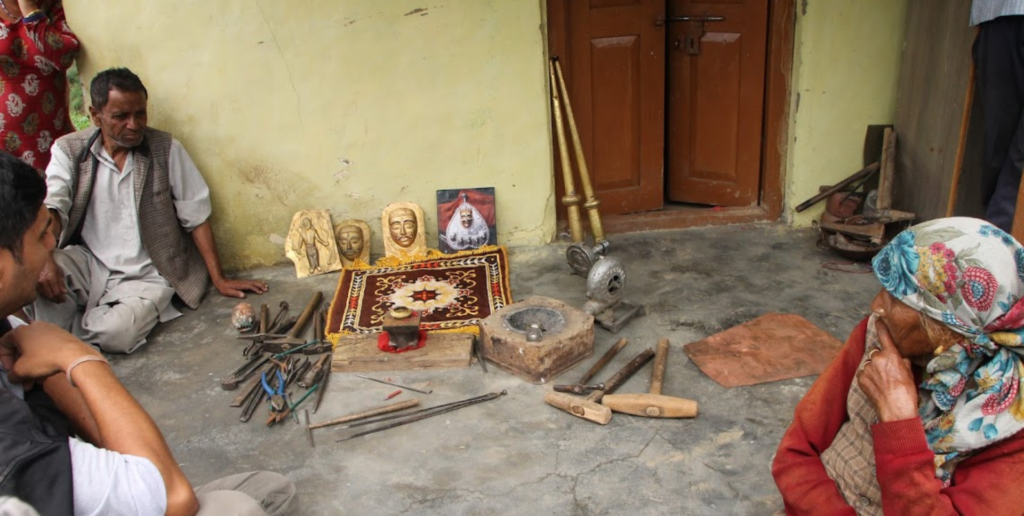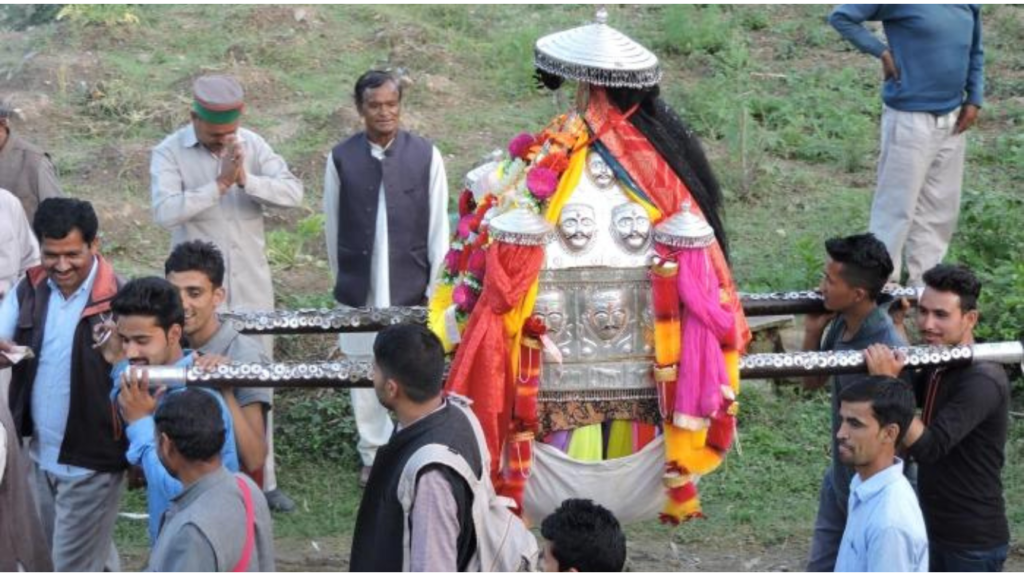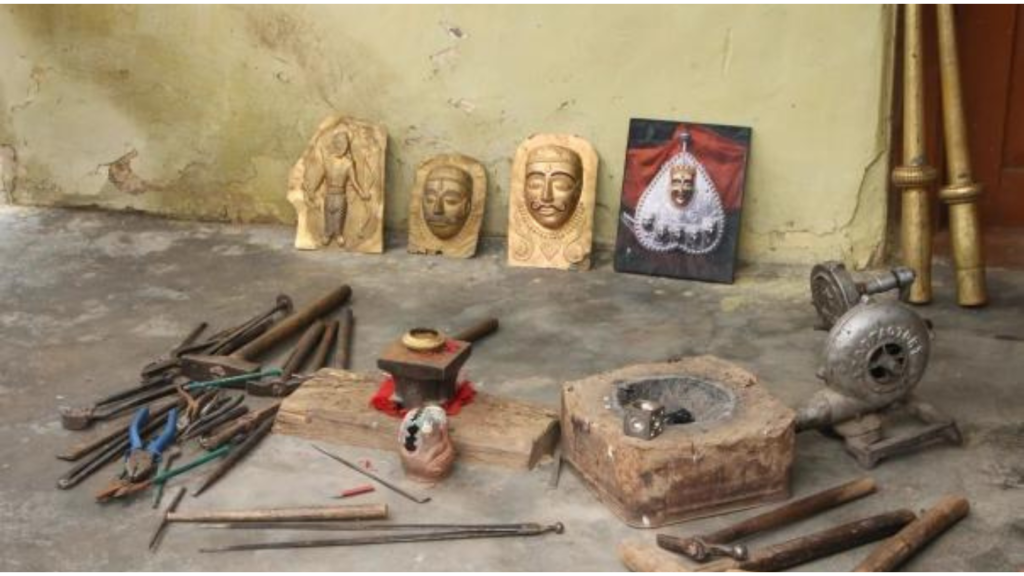
DEV KE MOHRE/ MUKHOTE KA KAAM – MASK MAKING
QUICK OVERVIEW
Origin: Kullu, Himachal Pradesh
Products: Mohras, Mukhote, Chattris
Musical Instruments: Dhol, Nagada, Karnal
Tools Used: Hammer, Chisels, Files, Punches, Tongs
Craftsperson: Pawan Kumar

Mela procession of the Gihinag Deity in Pangna Valley
THE CRAFT
Pangna Valley has over 50-60 presiding deities, who travel through the hills and valleys for numerous festivities, melas and religious processions throughout the year.
Mask Making or broadly Sheet Metal Work (Tattar-ka-kaam) largely caters to the ceremonial requirements of the region’s temples. It is closely associated with traditional Himachali folklore and tales.
The chief products made are mohras or mukhote, the sheet masks depicting the various divinities worshipped locally; chattries, the umbrellas used to shield the deity when they are taken out of temple premises in festive processions; and a range of musical instruments including Dhol, Nagada, Narasingha and Karnal.
On celebratory occasions, several devotees commission their presiding deity’s abhushan in gold, silver or brass, upto 6 months in advance. During the 9 days of the Dussehra festival, the craft receives added impetus when a temporary market ‘mela’ is set up, and similar sheet metal objects such as brass and silver utensils used in domestic rituals and a variety of instruments are purchased by the devotees.
THE MAKING
The process of mask making begins with the sourcing metal sheets, transferring the hand-drawn form via a process called die-transfer and then die-pressing or light beating.
Once the desired shape is achieved, the object is heated in a coal fired kiln to soften it and grant it luster. The figurative details are carved on and the artifacts are polished with lemon leaves. The basic tools used are hammer, chisels, files, punches and tongs.

Assortment of tools used in the making process
THE CRAFTSMEN

Pawan Kumar at work – making a traditional ‘Dhol’
Pawan Kumar, son of the local blacksmith, began his career as a blacksmith but soon moved away from his family’s trade to explore other crafts. During his time at Kullu, he learnt Thattar-ka-kaam and came back to work in his village — post apprenticeship. For the past 14 years, Kumar has worked on more than — sets of abhushan for Pangna’s numerous deities. He also specializes in making a range of processional instruments, and has conducted workshops in neighboring districts. While he handles most of the work, during peak season his family chips in for the big orders.

The Karnal – usually a part of religious ceremonial processions
